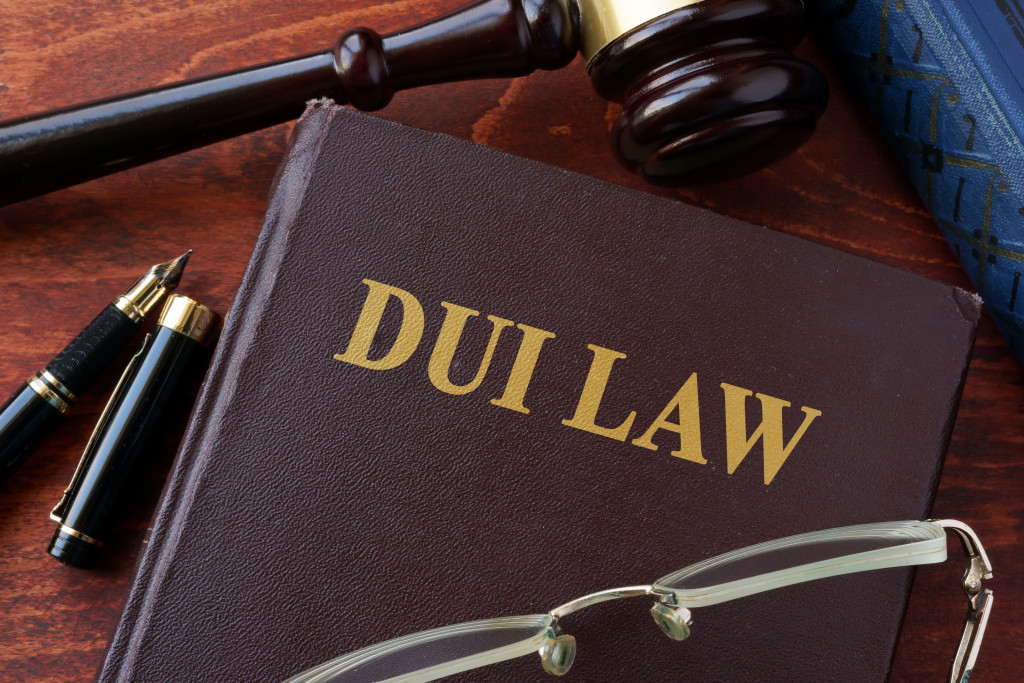- Facing a DUI charge can be overwhelming and challenging.
- Seek legal advice from a specialized criminal defense attorney.
- Understand the potential legal, administrative, and long-term consequences of a DUI conviction.
- Prioritize self-care to cope with the emotional and physical impact of dealing with a DUI.
- Stay organized and follow all legal procedures and deadlines to avoid additional penalties.
Dealing with a DUI (Driving Under the Influence) can be a challenging and overwhelming experience. The consequences of a DUI can be severe, including legal penalties, license suspension, and increased insurance rates. Knowing how to navigate the situation effectively is essential if you face a DUI charge. Here are five tips to help you deal with a DUI.
1. Seek Legal Advice
When facing a DUI charge, seeking legal advice from a qualified professional is crucial. Consult with a reputable criminal defense attorney who specializes in DUI cases. They will provide expert guidance and help you understand the legal process and your rights.
A skilled attorney will analyze your case, assess the evidence, and develop a strong defense strategy tailored to your situation. They may challenge the validity of the traffic stop, question the accuracy of field sobriety tests or breathalyzer results, and negotiate with the prosecution on your behalf. Having a trusted attorney by your side can make a significant difference in the outcome of your case.
2. Understand the Legal Consequences

Educate yourself about the potential legal consequences of a DUI. Each jurisdiction has its laws and penalties for DUI offenses, so it’s essential to familiarize yourself with the specific regulations in your area. Understanding the potential ramifications will help you make informed decisions throughout the legal process and take the appropriate steps to mitigate the consequences.
Here are the types of legal consequences that you must know:
Criminal Penalties for DUI Offenses
DUI offenses are considered criminal offenses, meaning a conviction can result in serious penalties. These penalties vary depending on the circumstances of the offense and the jurisdiction but commonly include fines, probation, and jail time.
In some cases, such as when property damage or injuries are involved, DUI offenses can be charged as felonies, resulting in even more severe consequences.
Administrative Penalties for DUI Offenses
In addition to criminal penalties, DUI offenders may also face administrative penalties from the Department of Motor Vehicles (DMV). These penalties often include license suspension or revocation, mandatory alcohol education programs, and ignition interlock device requirements.
It’s essential to understand that these administrative penalties are separate from criminal penalties and can still be enforced even if you are acquitted of a DUI in court.
Impact on Employment and Professional Licenses
A DUI conviction can also significantly affect your employment and professional licenses. Many employers conduct background checks, and a DUI conviction may appear on your record, potentially affecting job opportunities.
In addition, certain professions, such as healthcare or transportation, may have strict regulations regarding DUI offenses, which could result in a loss of professional licenses.
Long-Term Consequences and Record Expungement
A DUI conviction can have long-term consequences that extend beyond the initial penalties. It can stay on your criminal record for many years, affecting future job prospects, housing opportunities, and travel plans.
However, having your DUI conviction expunged from your record may be possible in some cases. This process varies depending on your case’s jurisdiction and specific circumstances but usually involves meeting certain criteria and completing a waiting period.
3. Take Care of Yourself Emotionally and Physically
Dealing with a DUI can be emotionally and physically taxing. It’s crucial to prioritize self-care during this challenging time. Reach out to friends and family for support and guidance. Talk to a therapist or counselor if you’re feeling overwhelmed or struggling with the situation’s emotional impact.
Taking care of yourself physically is equally important. Maintain a healthy lifestyle by eating well, exercising regularly, and getting enough rest. Engage in stress-reducing activities such as meditation, yoga, or hobbies you enjoy. Taking these steps will help you cope with the stress and maintain your overall well-being throughout the process.
4. Follow Legal Procedures and Deadlines

Dealing with a DUI involves navigating various legal procedures and deadlines. Understanding and following these requirements is crucial to avoid additional legal complications. These may include attending court hearings, complying with probation or license restrictions, and meeting any mandated alcohol or drug testing.
Stay organized and track all the necessary paperwork, court dates, and deadlines. Ensure that you are punctual and prepared for each legal proceeding. Failure to adhere to the legal procedures and deadlines can lead to additional charges or penalties, so staying on top of your obligations is essential.
In Summary
Dealing with a DUI can be a challenging experience. By seeking legal advice, understanding the legal consequences, taking care of yourself emotionally and physically, following legal procedures and deadlines, and seeking guidance from a criminal defense attorney, you can effectively navigate the process and work towards a favorable resolution. Remember, each case is unique, so consult with a qualified attorney to receive personalized advice and representation.






